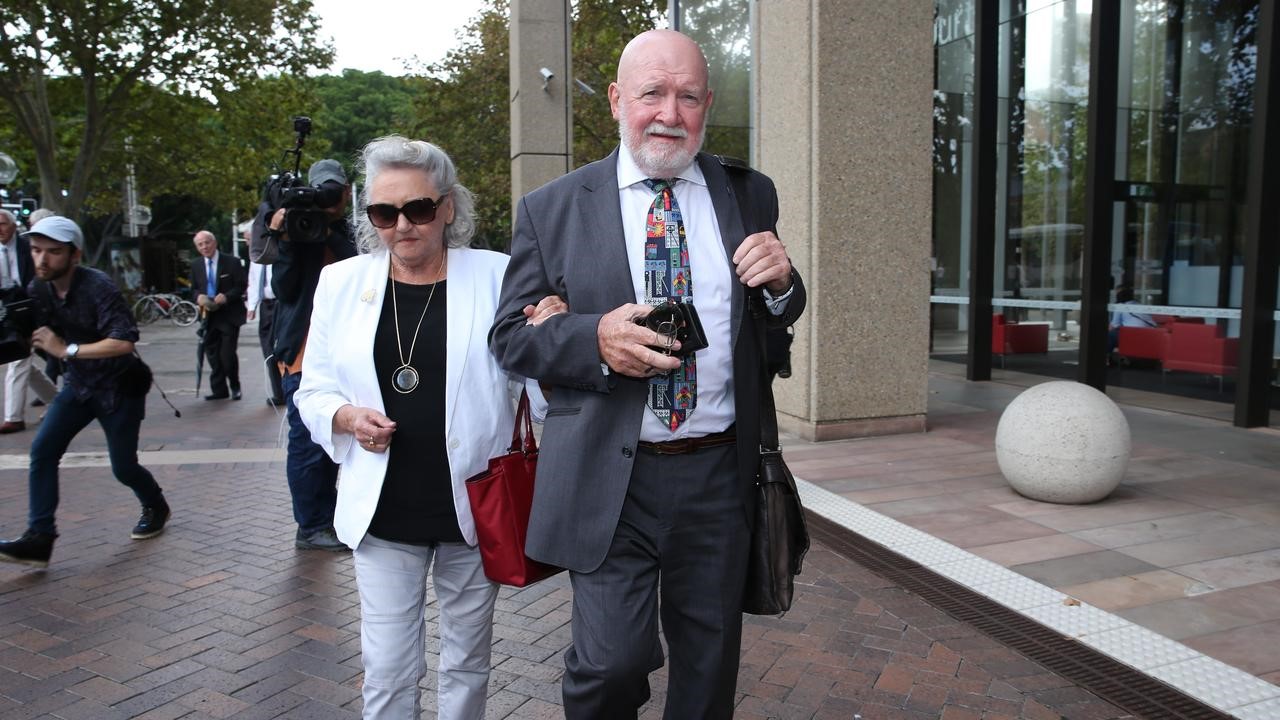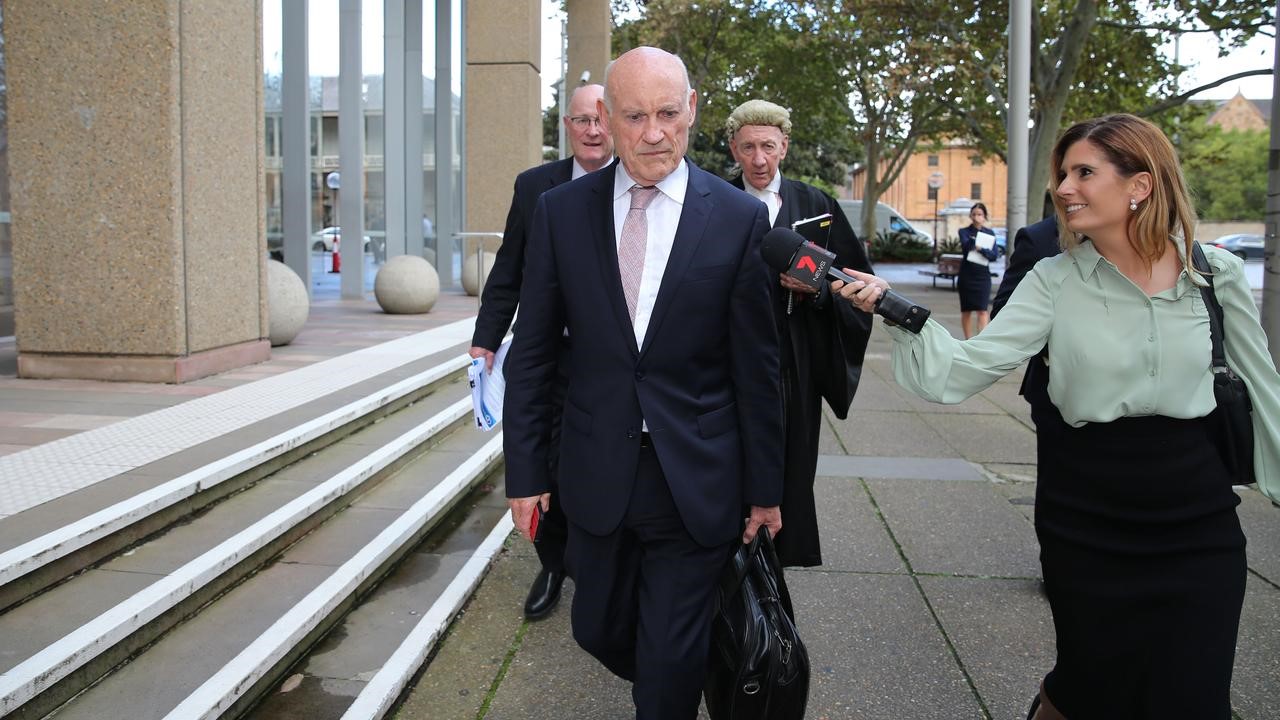
John Maitland pictured outside the Supreme Court in Sydney in 2019. Picture: Britta Campion
CHRIS MERRITT
2:28PM JANUARY 19, 2023
Just before Christmas, when John Maitland was finally acquitted of ICAC-related charges, the fate of this former union leader drove home a lesson that supporters of anti-corruption show trials seem incapable of grasping.
It’s this: these commissions resolve nothing. They generate headlines and ruin reputations. But when they venture into criminal conduct their findings are no more than accusations until they have been tested in court.
The courts have the final say. So only the foolhardy would make public policy on the basis of untested accusations – except, of course, in NSW.
In that state, the Independent Commission Against Corruption has toppled innocent premiers which might explain why it holds many politicians in thrall.
It is treated like some sort of oracle whose findings, while untested in court, are considered infallible. They have even formed the basis for law.
But just over nine years ago, the oracle faltered. Its failure only came to light last month when the NSW Supreme Court wrote the final chapter in Maitland’s horrific story.
This was long after the NSW parliament had stripped people of property using legislation triggered by an ICAC report whose findings on Maitland are at odds with those of the court.
This flawed basis for the destruction of property rights was exposed on December 20 when Maitland, who had been declared corrupt by ICAC in August 2013, was acquitted of all charges.
Maitland is an innocent man. His conduct has been minutely examined and in the eyes of the law he has done nothing wrong.
His vindication took the best part of a decade.
The focus now must turn to those gullible lawmakers who legislated to destroy property rights based on sensational public assertions of wrongdoing that were untested in court and not even subject to merits review.
ICAC had accused Maitland of securing a coal exploration licence for his company, Doyles Creek Mining, as part of a corrupt arrangement with former mining minister Ian Macdonald.
Before the commission took an interest in this affair, Maitland’s company had been bought by a listed third party, NuCoal Resources, which paid $94m and spent another $40m on exploration, development studies and land acquisitions.

Former NSW minister Ian Macdonald outside Supreme Court in Sydney in 2019. Picture: Britta Campion
Before any of ICAC’s accusations had been tested in court, the NSW government, then led by Barry O’Farrell, relied on the “facts” as found by the commission and cancelled the licence – NuCoal’s main asset.
This was despite the fact that losses from the cancellation would fall on NuCoal’s innocent shareholders, many of them families in the Hunter Valley.
When Justice Hament Dhanji acquitted Maitland, the judge also ruled that Macdonald, the former minister, had engaged in misconduct in public office – a finding that is likely to be appealed.
But right now, the Supreme Court has found that the misconduct associated with the issuing of this licence involved Macdonald but not Maitland. It took place inside the government, not in Maitland’s company.
By securing an exploration licence and conducting himself in a lawful manner, Maitland was doing no more than what any company chairman was entitled to do: he was serving the interests of his company. So if he did nothing wrong when he secured that licence, how can NSW justify its refusal to compensate NuCoal for the cancellation of a licence that was lawfully obtained?
The only wrongdoing happened inside the state government when Labor was last in office. Yet the Coalition government, through O’Farrell’s licence cancellation, made things worse.
The losses from this act of government corruption were not borne by the state, where they belong, but were shifted entirely to the innocent mum and dad shareholders in NuCoal.
And as an added insult, they were also stripped of the right to take their grievances against the state to the justice system. Property rights, the presumption of innocence and access to justice all counted for nothing.
Some families had invested their life savings in NuCoal only to see the share price collapse not because of any fault by the company but because NSW had seized its main asset and refused to pay compensation.
Maitland, an innocent man, spent almost two years in prison before his original conviction in 2017, along with that of Macdonald, was quashed and they were ordered to face a new trial.
On December 29, nine days after his acquittal, Maitland wrote to NSW opposition leader Chris Minns arguing that NuCoal’s shareholders needed to be compensated. He wrote that none of ICAC’s accusations against directors of the licence holder, Doyles Creek Mining, had been endorsed by the courts.
“In subsequent years none of the original DCM directors have been found guilty by NSW courts of any wrongdoing,” Maitland wrote to Minns. “NuCoal and individuals wrongly accused of corruption and acquitted by the courts, like myself, cannot be blamed for any so-called wrong decision by a government minister and should be compensated urgently by the NSW government,” his letter to Minns says. Similar letters are planned for others in NSW politics.
On January 9, Maitland wrote to Governor-General David Hurley asking to have his Order of Australia restored after it was revoked in the wake of ICAC’s finding against him: “As I have now been vindicated by the Supreme Court of NSW (which is the highest court of NSW) I respectfully request that my Order of Australia be restored and presented at the next award presentations.”
Those seeking office at the March state election need to explain where they stand on this affair. Do they support the oracle? Or do they support the justice system?
Chris Merritt is vice-president of the Rule of Law Institute of Australia
